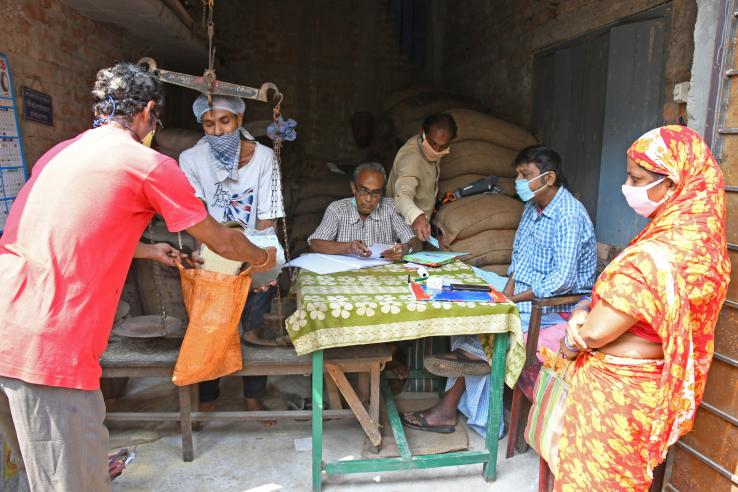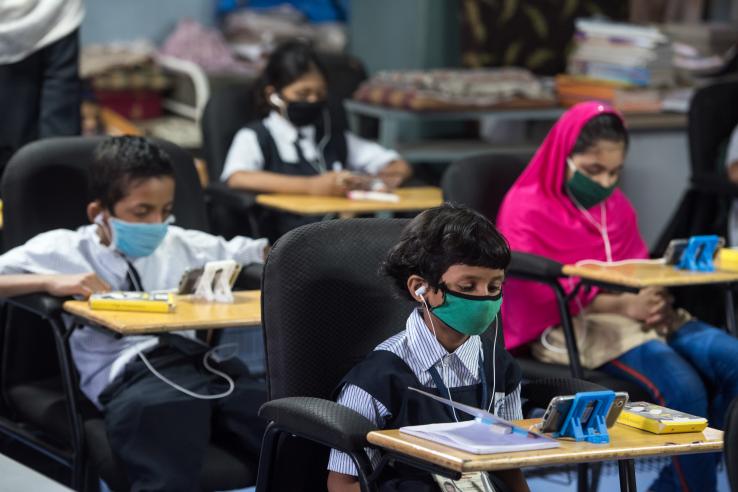Displaying 3646 - 3660 of 8489
Person
Shagun Sabarwal is Director of Policy, Training, and Communications at J-PAL South Asia, and Director of CLEAR South Asia.
Person
José Ignacio Longueira is a Survey Associate at J-PAL LAC where he works as a field supervisor for a pension savings program and is participating in the evaluation of a project on the inclusion and resettlement of migrants.
Person
Vishnu Padmanabhan is a Policy Manager at J-PAL South Asia where he supports regional outreach activities to promote evidence-based policy and programming for poverty alleviation.
Project
Researchers studied the effects of India's nationwide lockdown on child immunization in the north Indian state of Rajasthan. Comparing the status and timeliness of key first-year immunization milestones among children who turned 12 months old before, during, and after the lockdown, researchers found...
Person
Andrés Palacios Gálvez joined J-PAL as an intern in the Policy and Training groups at J-PAL’s regional office in the Latin America and Caribbean.
Update
J-PAL Updates
J-PAL and MIT Economics look into potential barriers to higher education in the MicroMasters program in Data, Economics, and Development Policy as they welcome the second cohort of DEDP master's students to campus. Read about this, ways to address Covid-19 learning gaps, using evidence to promote...
Person
Aishwarya Singh is a Research Associate for Mushfiq Mobarak at J-PAL South Asia.
Research resource
This resource is intended for researchers who are interested in collecting cost data and conducting comparative cost-effectiveness analysis (CEA) for their evaluation. It provides an overview of CEA, outlines the basic calculations and key assumptions, and provides two comparative CEA examples from...
Person
Anshuman Shukla is a Senior Project Manager for J-PAL South Asia at IFMR in India. He supports the newly launched initiative on Creating Learning Opportunities for Public Officials (CLOP) in India.
Blog
Read our interview with Prerna Kundu and Prashansa Srivastava, Co-Founders of Women in Economics and Policy, and Research Associates at J-PAL South Asia.
Project
Researchers studied the economic, social, and security impacts of the Covid-19 crisis on informal market vendors in Lagos, Nigeria through a phone survey. Nearly half of respondents reported that their marketplaces were closed entirely, and only 1.5 percent of respondents reported that their...
Resource
Basic page
Register for the Covid Dialogues: Addressing Education Challenges during Covid-19 webinar on June 8, 2021.
Event
In low- and middle-income countries, regular program monitoring for improving public service delivery and the beneficiary experience is often constrained by slow, indirect processes such as periodic government surveys as well as unrepresentative, sporadic data from government dashboards and...
Event
This Covid Dialogues webinar will share policy-relevant evidence on online learning, parental engagement, and girls’ education to address education access, quality, and equity challenges resulting from and exacerbated by Covid-19.



